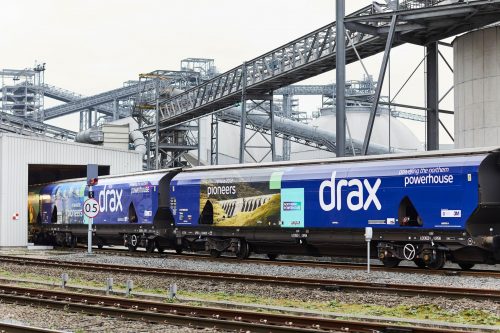Drax hits pause button on £2bn investment in bioenergy technology

Drax Power Station, in North Yorkshire, has decided to pause it’s multi-million pound investment programme into its Bioenergy with carbon capture and storage (BECCS) project.
Drax has demanded more clarity on Government backing for BECCS.
The business says while it welcomed Government support for Carbon Capture and Storage (CCS) in last week’s Budget, it needs its own BECCS project to gain high priority “Track 1 status”, without which, it warns: “Drax Power Station may become unviable and unable to contribute secure power at a time of such critical need.”
Drax says that during times with the tightest margins, its biomass units provide up to 11% of total Great Britain electricity generation and up to 70% of the renewable generation.
It stresses the loss of Drax’s and other biomass units from the electricity system would further cut the country’s dispatchable capacity to 80% of peak demand (from the already forecasted fall to 85%), increasing reliance on gas and power imports, generation from intermittent renewables, and increasing costs for consumers.
Drax CEO, Will Gardiner, said: “While we welcome the Government’s ambition to invest billions in carbon capture and storage, we need a firm commitment to BECCS before we commit to investing £2bn into installing this technology at Drax Power Station.
“Until we have this clarity, we are pausing our multi-million pound investment programme in the UK BECCS project and urge Government to use the planned announcement at the end of the month to outline their support for this.
“Any further delays to this project could impact the UK’s security of supply, net zero and levelling-up ambitions and the viability of Drax Power Station.”
Drax has cited research carried out on its behalf by business consultancy Baringa, which has shown that in the late 2020s, biomass generation could play an increasingly critical role in ensuring security of UK energy supply.
It explains the research shows that by 2027, peak demand for electricity in Great Britain will increase by 4GW but at the same time the imminent closure of coal, older gas generation and nuclear power stations will remove up to 6.3GW of secure capacity from the grid.
Drax says this will mean the dispatchable capacity which supports Great Britain’s energy security will fall from 93% to 85% at times of peak demand, increasing the risk of a supply shortage.
It means the system will need to rely on other forms of capacity, such as electricity interconnectors and intermittent renewable generation like wind or solar, to make up the 15% difference at times of peak demand.








